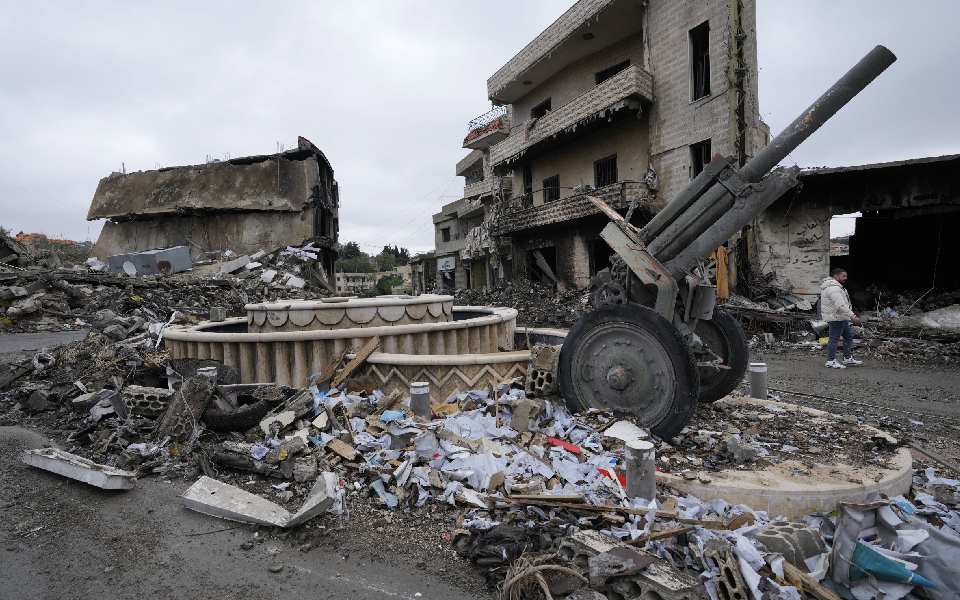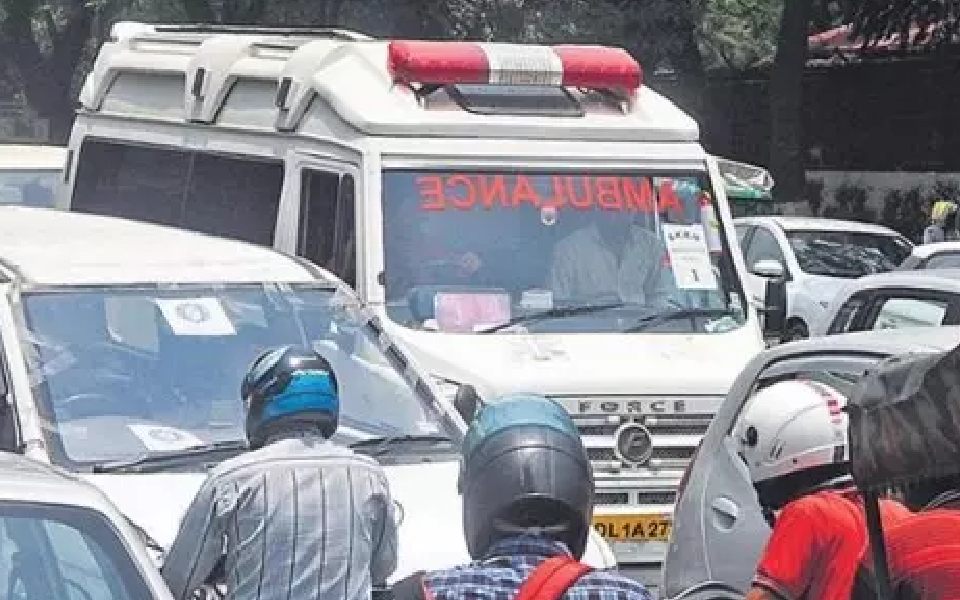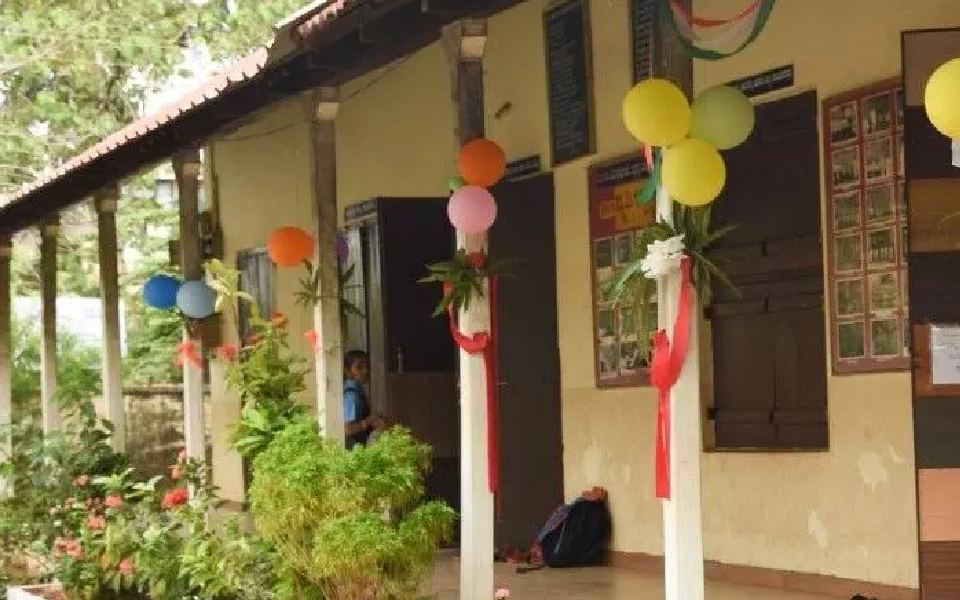Bhopal (PTI): Madhya Pradesh Chief Minister Mohan Yadav has asked officials to ensure meat and liquor are not consumed in and around religious towns located along the Narmada river, considered the lifeline of the state.
There are 21 districts, 68 tehsils, 1138 villages and 1126 ghats as well as 430 ancient Shiva temples and two 'shakti peeths' along the banks of the river.
Chairing a meeting of officials on Friday, Yadav also said Amarkantak in Anuppur district, from where the Narmada originates, must be given top priority for environmental protection.
"It must be ensured that meat and liquor are not consumed in and around the religious towns and places located on the banks of Narmada River. Future settlements, land should be identified away from the Narmada river's origin and a satellite city should be developed. Sewage should not be released into the Narmada. Work on it must be done within a time limit," Yadav said.
Latest technologies should be used for solid waste management, while satellite imagery and drone systems must be deployed for monitoring of activities along the river in order to enhance environmental protection, he said.
Asserting that all mining activities by machines must be banned, Yadav pointed out Narmada is the only river in the world whose 'parikrama' (circumambulation) is done by devotees.
In order to make it a major religious and tourism activity, work should be done in a phased manner to develop a 'parikrama path' for the convenience of devotees, he added.
"Activities for infrastructure development should be started through local panchayats and committees by marking places on the Parikrama Path. Self-help groups and local youth should be encouraged to develop homestays with arrangement of food etc for people undertaking parikrama of the river," Yadav said.
Of the river's 1312 kilometres, a dominant 1,079 km is in Madhya Pradesh.
Let the Truth be known. If you read VB and like VB, please be a VB Supporter and Help us deliver the Truth to one and all.
Beirut, Nov 28: The Israeli military on Thursday said its warplanes fired on southern Lebanon after detecting Hezbollah activity at a rocket storage facility, the first Israeli airstrike a day after a ceasefire between Israel and Hezbollah took hold.
There was no immediate word on casualties from Israel's aerial attack, which came hours after the Israeli military said it fired on people trying to return to certain areas in southern Lebanon. Israel said they were violating the ceasefire agreement, without providing details. Lebanon's state-run National News Agency said two people were wounded.
The back-to-back incidents stirred unease about the agreement, brokered by the United States and France, which includes an initial two-month ceasefire in which Hezbollah members are to withdraw north of the Litani River and Israeli forces are to return to their side of the border. The buffer zone would be patrolled by Lebanese troops and UN peacekeepers.
On Thursday, the second day of a ceasefire after more than a year of bloody conflict between Israel and Hezbollah, Lebanon's state news agency reported that Israeli fire targeted civilians in Markaba, close to the border, without providing further details. Israel said it fired artillery in three other locations near the border. There were no immediate reports of casualties.
An Associated Press reporter in northern Israel near the border heard Israeli drones buzzing overhead and the sound of artillery strikes from the Lebanese side.
The Israeli military said in a statement that “several suspects were identified arriving with vehicles to a number of areas in southern Lebanon, breaching the conditions of the ceasefire.” It said troops “opened fire toward them” and would “actively enforce violations of the ceasefire agreement.”
Israeli officials have said forces will be withdrawn gradually as it ensures that the agreement is being enforced. Israel has warned people not to return to areas where troops are deployed, and says it reserves the right to strike Hezbollah if it violates the terms of the truce.
A Lebanese military official said Lebanese troops would gradually deploy in the south as Israeli troops withdraw. The official spoke on condition of anonymity because they were not authorized to brief media.
The ceasefire agreement announced late Tuesday ended 14 months of conflict between Israel and Hezbollah that began a day after Hamas' Oct. 7, 2023 attack out of Gaza, when the Lebanese Hezbollah group began firing rockets, drones and missiles in solidarity.
Israel retaliated with airstrikes, and the conflict steadily intensified for nearly a year before boiling over into all-out war in mid-September. The war in Gaza is still raging with no end in sight.
More than 3,760 people were killed by Israeli fire in Lebanon during the conflict, many of them civilians, according to Lebanese health officials. The fighting killed more than 70 people in Israel — over half of them civilians — as well as dozens of Israeli soldiers fighting in southern Lebanon.
Some 1.2 million people were displaced in Lebanon, and thousands began streaming back to their homes on Wednesday despite warnings from the Lebanese military and the Israeli army to stay out of certain areas. Some 50,000 people were displaced on the Israeli side, but few have returned and the communities near the northern border are still largely deserted.
In Menara, an Israeli community on the border with views into Lebanon, around three quarters of homes are damaged, some with collapsed roofs and burnt-out interiors. A few residents could be seen gathering their belongings on Thursday before leaving again.





